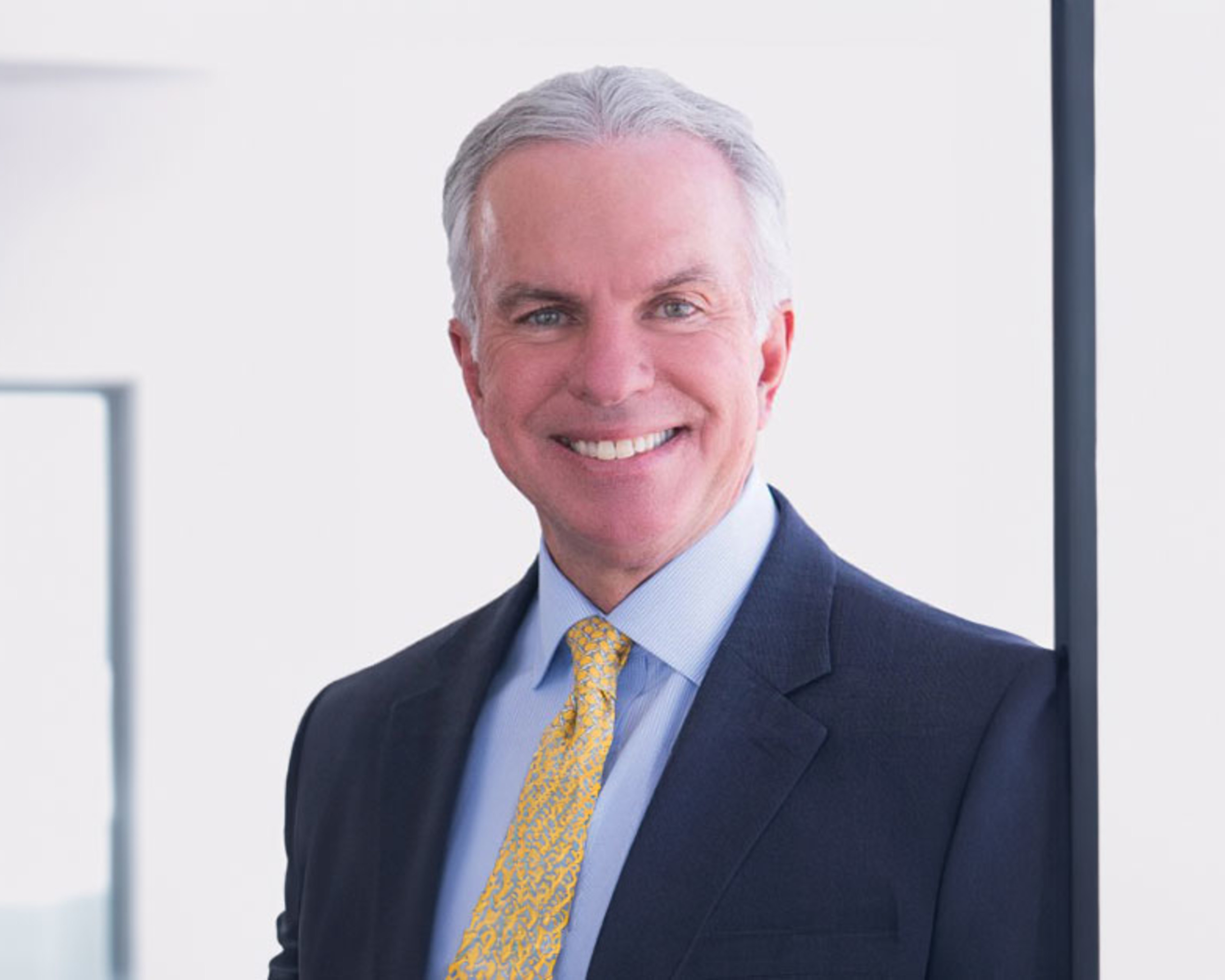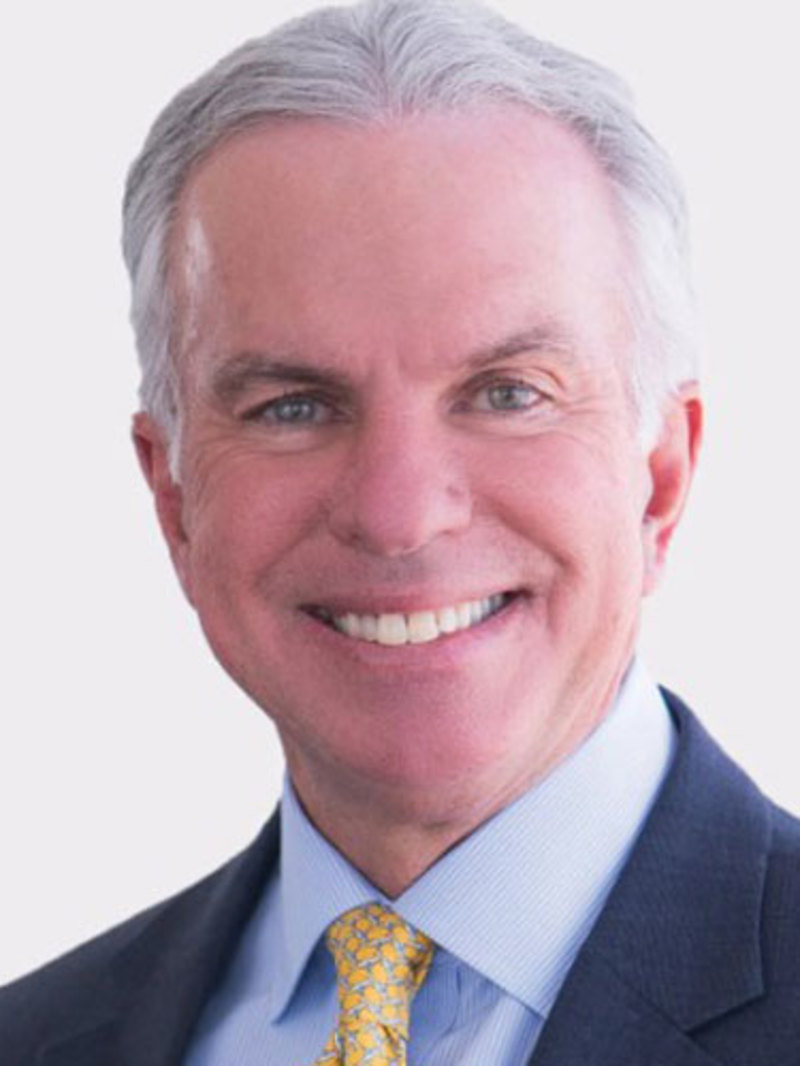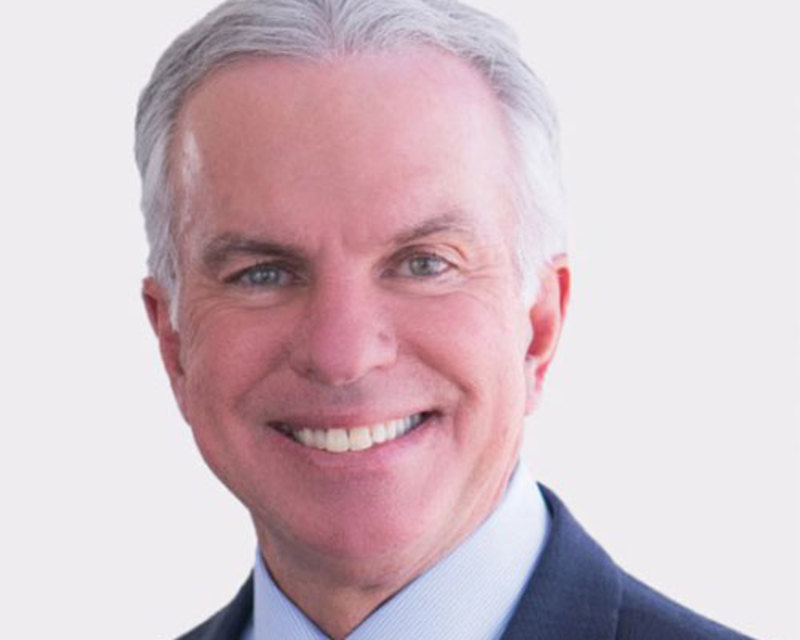


Podcast: Can investors position their portfolios to prepare for a US election outcome?
Anticipating how financial markets might react to the US presidential elections is a tough call for investors. Mike Mullaney, Director of Global Markets Research at Boston Partners, gives some clear guidelines on the scenarios.
This podcast is for professional investors only.
Mike Mullaney (MM): No matter who is in as the president as far as his party affiliation, it’s key to have a split Congress underneath that president because that is the series of checks and balances, which seems to have the best response for the markets.
Welcome to a new episode of the Robeco podcast.
Erika van der Merwe (EM): Deciding how to position for the US election outcome is a tough call for investors. Democrats and Republicans hold starkly different views on matters critical to the economy and to financial markets. But at this early stage, polling data provide very little guidance on the outcome of the US election in November. So we’ve invited Mike Mullaney to enlighten us. Mike is Director of Global Markets Research at Boston Partners. Welcome, Mike.
MM: Hello, Erika. How are you?
EM: I’m good, thanks, and good to have you with us. Mike, even for outsiders like myself who don’t live and vote in the US, it always seems to me that the whole event around the electioneering and the voting and the counting of votes is a test of endurance. I’d like to know where we stand now. I refer to voter polls. We know how unreliable these were in the 2016 election. And for this, the 2024 election, it’s still early days and opinions are still forming and shifting. But what do we know so far about US voters’ views on Joe Biden and Donald Trump?
MM: From an approval standpoint, we’ll start with that. Currently President Biden has the lowest approval that we’ve seen versus the last six presidents that have been in office. His approval rating is only 38.9%. The next closest was George Bush Senior, [George] H.W. Bush at 40[%]. I will say this though: on average, Biden probably has had a higher approval rating than Donald Trump has been on average across his entire presidency, though currently he ranks even below Donald Trump at the end of his presidency.
EM: So, Mike, on this popularity, what are the areas where Biden is disappointing voters?
MM: Well, unfortunately, he gets a bad rep for the economy because the inflation snafu that we saw in the United States came on his watch. And so he seems to get blamed for that, even though it really wasn’t his fault. So the economy – he is still behind in the polls as far as the job that he’s done. But probably the two that stick out are – most likely, it’s the way he’s handled the Middle East situation as one and secondly, it would be immigration. That’s probably the thorniest issue that we have in the United States relative to Joe Biden.
EM: Can you elaborate on that? Is this immigration from the southern border or immigration more broadly within the US?
MM: It’s the southern border predominantly. There has been some immigration that we’ve seen coming through California, most recently with Chinese immigrants coming through California, but it’s been predominantly through the southern border, with Latin American countries that are sending their people toward the United States. So that’s been the biggest problem for President Biden.
EM: So one of the bigger problems for President Trump then is around abortion. How do you see that playing out in terms of the messaging?
MM: It’s pretty clear what happened as far as polling was concerned and even the betting on the two candidates. But since the Arizona law was put in place, [with] the very strict rules on abortion that happened about three weeks ago, but it was actually overruled. But President Trump, his popularity and his approval rating took a significant turn for the worst based upon what happened in Arizona. And that was basically blamed on President Trump for initiating this with his appointments to the Supreme Court, putting in three conservative candidates that have overruled Roe versus Wade and that continues to be probably the biggest impediment to President Trump as far as him getting back into office. His approval rating as far as his handling on the abortion issue is very low.
EM: Now, one of the many complexities of the US voting system is around swing states. These could make or break the final election outcome. What are you seeing in that regard? How the candidates are faring thus far?
MM: There are seven swing states that, once again, for background, it’s not the popular vote which gets presidents elected in the United States, it’s the electoral vote. There are, I believe, 538 electoral votes available, of which 270 have to be attained by the candidate in order to become president. But there are, as you mentioned, seven swing states: Georgia, North Carolina, Arizona, Nevada, Wisconsin, Pennsylvania, and Michigan. And currently, President Biden trails former President Trump in five of those seven states. He is only ahead as of right now. The most recent data that I’ve seen in one state, that being Michigan, even behind in his own home state of Pennsylvania relative to former President Trump.
EM: Looking at the campaign promises and the messaging over and above the issues, the two issues we’ve just spoken about around immigration and abortion. What might sway voters either way, and I’d imagine that the state of the economy and voters confidence in their ability to earn their bread and butter would always be a crucial issue for voters. What are you seeing if you analyze their campaigning?
MM: Well, if you look at something called the misery index, which is the combination of the unemployment rate plus the inflation rate and currently on a three-month moving average, that stands at 7.3% for President Biden, which is very low compared to historical standards of other presidents, meaning that he’s doing a good job as far as keeping inflation down currently and the unemployment rate down currently. He’s also had a 24% improvement in that number in the last year. Historically, only in one out of 16 elections have those kind of numbers faltered for the current presidents as far as being reelected. And that was back in 1976 during the President Nixon years as a byproduct of the Watergate scandal. So it’s a very good predictor. And as of right now, based upon that measurement of economic activity, Biden looks to be in good shape. It’s probably the strongest poll or analysis that you can say that Biden is really winning in right now.
EM: And what about whether that matches with their campaign promises? I mean, what is Biden promising to do to support income levels and welfare compared with what Trump is offering?
MM: Well, generically, they’ve stated various items along their potential platform going into 2025. I surmise that in basically just three terms, if you look at President Biden, you’re going to get basically more taxes, more regulation and more spending and probably a bigger deficit. I think the only difference between that and President Trump is that with President Trump, you’re going to get less taxes, but you’re also going to get more regulation and more spending and potentially a much larger deficit than President Biden going forward because of the reduction in, once again, in taxes that former President Trump has more or less promised to be part of his platform. That being said, you’re going to see a lot of initiatives by both candidates as far as reshoring in the United States, in building out the industrial space across the United States, which seems to be a paramount for both of the candidates, which would be beneficial for all US Americans, but potentially, once again, may be inflationary as well.
EM: Talking about inflation. So what’s fascinating here is the potential role of the Fed as we move closer to the election. What’s your view on the role of the Fed and whether it would be disciplined enough to remain independent and impartial? Or do you think there will be a temptation to step in and shape the economic outcomes ahead of the election?
MM: I actually did an analysis on this. I went back to 1972, and I looked at the six months prior to the election, how active or inactive the Fed was historically across that time frame. Going back into the 70s and 80s, the Fed was very active just prior to elections. It didn’t seem to make a difference that they were going into an election year and ought to stay on the sidelines. But for the last three elections, there have been no moves whatsoever in the six months prior to the election. And actually going back to 2008 was the last time we had any move whatsoever in the election, and that was six months prior to the election. There was actually a cut of 25 basis points. So most recent history, which tells you that the Fed tries to stay away from the political aspects of the election in their actions and how they might affect that. That being said, we’ve heard that the Fed is not apt to cut rates anytime soon. But they have still promised vis-a-vis their dot plot that there are three rate cuts coming in 2024, meaning that they’re running short of time now if they are going to cut rates because the later they do this, the more political in nature the move is going to seem.
EM: More and more aggressive, then.
MM: And potentially more aggressive at that point. I don’t think the bond market or the bond vigilantes will like a cut by the Fed in September. Obviously just prior to the election.
EM: And in other words, what, there’d be a selloff in the bond market?
MM: Yeah, along the long end I would think that the bond vigilantes would think that that was a more of a political move than a move for economic reasons, especially if inflation stays as sticky as it has been now for the last probably three months. The core PCE number on a three-month basis is now up on an annualized basis of about 5.5%. So and once again, Chairman Powell and his post-meeting conference did allude to that, that inflation has not been pleasantly surprising for them in the last couple of months. It’s been stickier than they’ve thought and they have not made much progress.
EM: So, Mike, as has become customary, we will now introduce a quiz just to check your US election knowledge. Are you up for it?
MM: Sure.
EM: First question. Trump and Biden are once again the two oldest presidential candidates in US history. What’s the minimum age, though, for a presidential candidate?
MM: 35 years old.
EM: Correct! True or false? Since 1952, the S&P 500 has never declined during a presidential re-election year.
MM: It has declined in an election year, but I’m not entirely sure if it’s a re-election year. I’m going to take a guess and say it has not declined in a re-election year.
EM: Correct. So the statement is true. And this is based on research by Comerica. Next question. This election is a rematch in the sense that it will be the same two candidates running for presidency. Has such an election rematch ever happened before in the US, and if so, any idea how often?
MM: Once, it was way back. When? Probably in the 1930s.
EM: My research says it’s happened six times previously, with the last time being in 1956. The first time was Thomas Jefferson and John Adams, and the last time was Dwight Eisenhower and Adlai Stevenson.
MM: You got me.
EM: Well, that’s a pretty tough one, Mike. You know who said this in a speech? “In my career, I’ve been told I was too young and I’ve been told I’m too old. My fellow Americans, the issue facing our nation isn’t how old we are, it’s how old are our ideas to lead America, the land of possibilities. You need a vision for the future and what can and should be done.”
MM: I’ll take a guess of John F. Kennedy.
EM: It was President Biden in this year’s State of the Union address.
MM: Oh. Did not get that one?
EM: Next question. Of the two presidential candidates who wrote this: “Somewhere along the way, I had begun to look up to my own sons.”
MM: I’ll choose Donald Trump just for the sake of doing something different.
EM: In fact, it was Joe Biden in his book, Promise Me Dad: A Year of Hope, Hardship and Purpose. Last question, a fun one. Who said this or who wrote this? “Rather, I like thinking big, I always have. To me it’s very simple. If you’re going to be thinking anyway you might as well think big.”
MM: Donald Trump.
EM: Indeed. From his book The Art of the Deal.
MM: Was there was a layup shot, that one.
EM: [Laughter] From his book, the Art of the Deal. Excellent. Well done. So, Mike, let’s fast forward to November, shortly after the elections. The votes have been counted how the market is going to respond? So you paint both scenarios with a Biden victory as opposed to a Trump victory. So would a Republican victory necessarily be market-positive, given that Trump is not your average Republican candidate?
MM: I was asked the same question when I rejoined Boston Partners back in 2016 about that election between Hillary Clinton and President Trump. And the question was just like, if Donald Trump was elected to the presidency, what would be the effect in the marketplace? And my response back in 2016 was that I thought the market would sell off hard, the S&P 500, which it did overnight. The futures market fell dramatically on the news that he was going to win the election. Trump was going to win the election. But then I said it was going to rally at that point afterwards and rally strong, which is exactly what turned out to happen. This time around, I’m going to the opposite side. I think the market will rally significantly on a Trump victory based upon the fact that he’s considered to be pro-business and pro-US economy. But he has a substantial amount of potential initiatives that are very disruptive generically, that could cause a dramatic increase in the volatility of the market. And I think more or less downside potential for the market once he is in office. That's my opinion, not Boston Partners’ opinion.
EM: Sure, got it. Could you elaborate, Mike, on those disruptive aspects of Trump's policy?
MM: Well, many of his projected policies I would say are mainstream, if you look he’s going to propose that the 2017 tax cuts that he put in place become permanent as compared to temporary. I think they’re expected to roll off in 2025. He’ll have reduced bank regulation. He’ll have a significant reshoring push. He’ll be much friendlier toward energy as far as emission rules and drilling. But then he has some unusual things that he’s mentioned he wants to do in his presidency as well. He wants to build ten Freedom Cities to house immigrants. They’ll basically be ten cities that would be protected by the National Guard. He wants massive deportation of non-documented immigrants, which is doable, but once again could be caustic. He wants to have a Navy embargo of ports to close drug routes to the US.
One of the key things he wants is to end birthright citizenship, which means that people who were not born in the United States, but had children here, who have lived there their entire lives and will no longer be eligible to become US citizens. That’s pretty revolutionary, given the state of how immigration has done actually reasonably well in the United States for now centuries. And then he gets into his kind of vindictive mode where he wants to fire deep state federal employees. He’s going to increase the oversight of the Federal Trade Commission and the Federal Communications Commissions. He’s mentioned defunding the FBI and the Justice Department, which in times have not been friendly to him. And then, once again he’s going to be tough on China. I think the key thing is that he’s proposing a 10% tariff on all imports to the United States, but potentially up to a 100% import on certain Chinese products coming to the US. Those are pretty radical moves. And I’m not sure how the markets will react to those kind of initiatives based upon historical presidents of other presidencies.
EM: And also depending on his ability to implement such dramatic changes.
MM: A key point: he would need to have a unified Congress, both the House and the Senate being Republican, for him to get a lot of these things pushed through, to get actually done. Historically, the best combination for the market has been a split Congress, because it’s a series of checks and balances on the president, whether it be a Democrat or Republican who is in office.
EM: Michael, we’ve elaborated a great deal now on a potential Trump victory, but is the counterpoint of a potential Biden victory that markets will have a neutral response? How do you see that?
MM: I think what will happen initially is that once again, the market would probably sell off on a Biden victory initially, because he is going to increase taxes both in the wealthy and at the corporate level as well. And generally, any increase in taxes usually doesn’t bode well for what the economic outlook is going to be. So I think initially there’ll probably be some consternation by investors about the presidency of a second presidency of Joe Biden. But he is going to have a lot of initiatives once again, on making Americans stronger, much like Donald Trump has with spending, and once again, it’s going to be potentially an impact on the deficit, yes, down the road, which is something we’re going to have to deal with at some point in time. But he is going to be stimulative as far as the economy is concerned, on his spending that he has as far as building out a better America, much like a lot of Trump’s initiatives as well.
EM: Mike, it seems impossible to call this election. It really seems very close at this stage, both the polling and the betting, as you say. What should investors know, though, and what should they look out for as the months progress? For example, are there any particular segments of the population that could be significant in bringing either one of them to victory?
MM: I’d say two things about this. First, from a timing standpoint, we’ve talked about the polling. The polling really is a wide variance of predictability in general, but more so before Labor Day in the United States. Labor Day this year is 2 September. So the polling gets more accurate post-Labor Day because people get more serious about the election, which at that point in time is basically right around the corner. The other thing is that the betting is generally much more accurate than polling is. So my recommendation for people, if they want to see how things are going, is to focus on the betting markets for the election as compared to the polling markets for the election.
MM: You know, which –
EM: Segments, you know, liberal women around the abortion vote.
MM: Yes, yes.
EM: Yes, even the Latino vote.
MM: Yeah. No, that’s a great question. So in 2020, what won the election per se for President Biden was the emergence of college-educated women coming out in droves to vote for President Biden based upon once again, it was more or less his stance or the stance on abortion relative to what the Republicans and Donald Trump was saying. So I think that will still be a key this year, that women will come out in droves to vote based upon their feeling about abortion. Trump’s biggest supporters, obviously, are the MAGA crowd, the 30 million or so that are considered to be the MAGAs. And they’re going to vote for ultra-conservative, right-leaning initiatives that that President Trump says no matter what.
EM: Family values.
MM: Family values, US first, 100% US first. So those are the kind of key things. The biggest swing kind of demographic for Donald Trump historically, if you look at it once again, from a pure demographic standpoint, is high school or less educated white males who are 55 years and older. So they have a tendency to be somewhat underemployed, undereducated, and they have a tendency to have a feeling that the government has not done well by them. And they need something different. That’s why Donald Trump has been very, very popular with that demographic.
EM: So, Mike, a final remark, what, in your opinion, would be the best possible election outcome in terms of market response?
MM: Well, if you go back to 1933 and you look at combinations of who’s in the presidency and who comprises the Congress, the best combination historically since 1933 has been a Democratic president with the Republican House and a Democratic Senate. The return on average annualized return for that combination is 15.7%. The second best combination has been a Republican president with a Democratic House and a Republican Senate. So that return has been 13.7%, still very strong. The bottom-line takeaway is that no matter who is in as the president as far as his party affiliation, it’s key to have a split Congress underneath that president, because that is the series of checks and balances, which seems to have the best response for the markets.
EM: Well, clearly, Mike, the outcome is all in the details. Thank you so much for providing us with a very clear and helpful framework with which to navigate these coming months as we approach the November elections.
MM: Thank you, Erika.
EM: To listeners, thanks for being here with us. Check out the full podcast series. We publish a new episode every month covering a range of investment-related topics. If you subscribe, you’ll receive a notification as soon as the new episode is published. In the meantime, please rate the show and share the show link with a friend. This monthly podcast and Robeco’s bi-weekly podcast, In tune with the markets, are both available on all major podcast platforms and on the Robeco website. Until next time.
Thanks for joining this Robeco podcast. Please tune in next time as well. Important information. This publication is intended for professional investors. The podcast was brought to you by Robeco and in the US by Robeco Institutional Asset Management US Inc, a Delaware corporation as well as an investment advisor registered with the US Securities and Exchange Commission. Robeco Institutional Asset Management US is a wholly owned subsidiary of ORIX Corporation Europe N.V., a Dutch investment management firm located in Rotterdam, the Netherlands. Robeco Institutional Asset Management B.V. has a license as manager of UCITS and AIFS for the Netherlands Authority for the Financial Markets in Amsterdam.



























